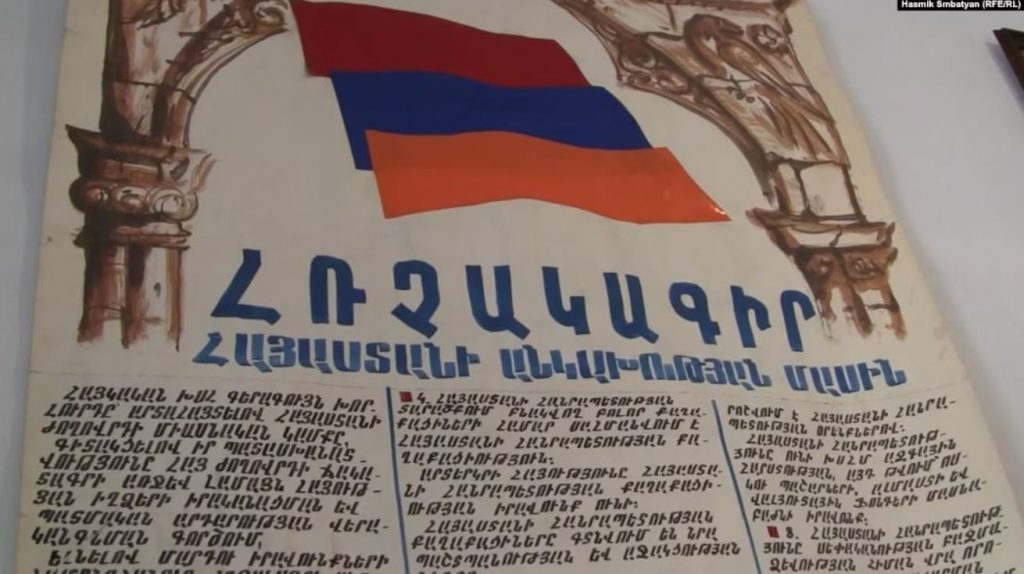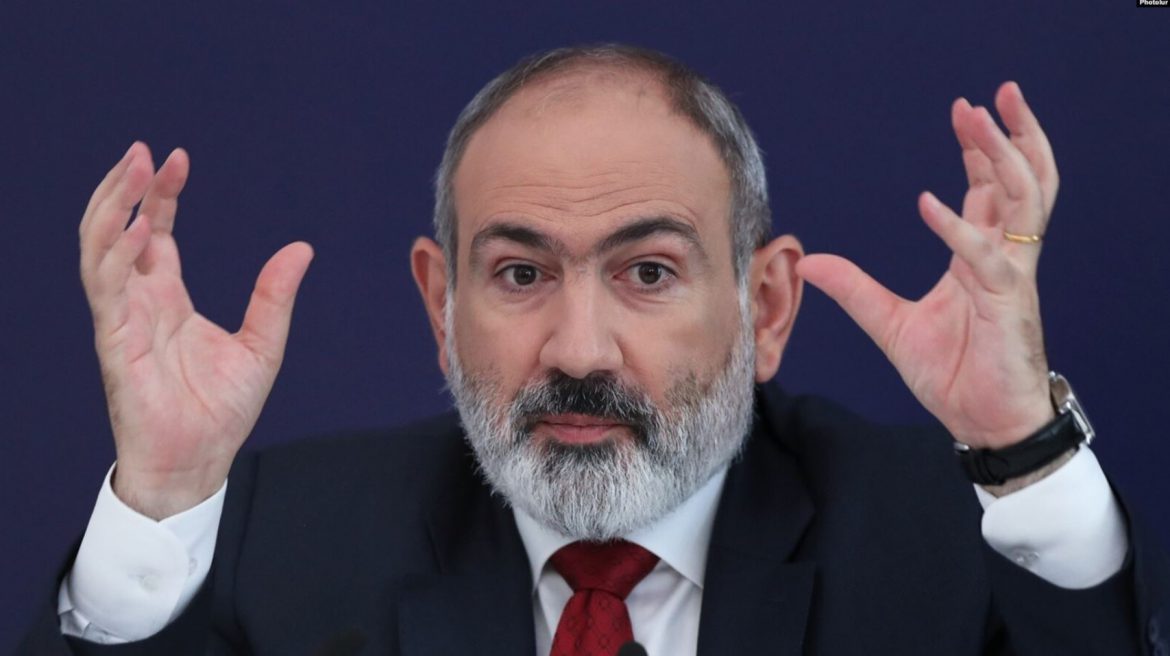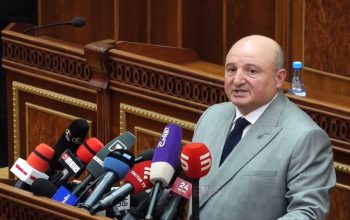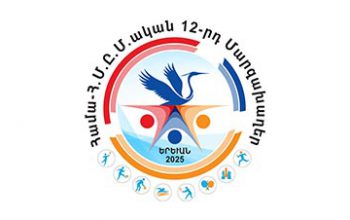Nikol Pashinyan on Wednesday criticized a 1990 declaration of Armenia’s independence, saying that it fomented the conflicts with Azerbaijan and Turkey and is now at odds with his “peace agenda.”
The document adopted by Armenia’s first post-Communist parliament stopped short of declaring the republic’s immediate secession from the Soviet Union. It announced instead “the start of a process of establishing independent statehood.”
The declaration made reference to a 1989 unification act adopted by the legislative bodies of Soviet Armenia and the then Nagorno-Karabakh Autonomous Oblast. It also called for international recognition of the 1915 genocide of Armenians “in Ottoman Turkey and Western Armenia.”
In a statement issued on the 33rd anniversary of its passage, Pashinyan said that he used to view the declaration as a “biblical message” but revised his assessment after the 2020 war in Karabakh (Artsakh).
“A critical analysis of the text of the declaration shows that we basically chose a discourse and content which is based on the formula that had made us part of the Soviet Union. Namely, a confrontational discourse on the regional environment that was to keep us in constant conflict with our neighbors,” read the statement.
It is the same formula that “had already led to the loss of our independence at the beginning of the 20th century,” Pashinyan went on. He claimed in this regard that only his current “peace agenda” aimed at normalizing Armenia’s relations with Azerbaijan and Turkey could prevent a repeat of that scenario.
“As long as we do not have peace, the ghost of the USSR will hover in our sky, in the sky of our region,” he added.

Pashinyan did not specify which concrete provisions of the 1990 declaration, which is mentioned in a preamble to the Armenian constitution, he is unhappy with.
Some opposition figures were quick to condemn the premier’s statement as pro-Turkish and pro-Azerbaijani. Artur Khachatrian, a lawmaker from the main opposition Hayastan bloc, said Pashinyan is resorting to “cheap blackmail” in a bid to convince Armenians to “abandon Karabakh.”
“I have the impression that Pashinyan’s ‘declaration of independence’ message was written in Ankara,” Eduard Sharmazanov of the former ruling Republican Party charged in a Facebook post.
Other critics have speculated over the last two years that Pashinyan is facing strong pressure from Baku and Ankara to remove all references to Karabakh and the Armenian genocide from the constitution.
Pashinyan drew strong condemnation from the Armenian opposition and Karabakh’s leadership in May when he pledged to recognize Azerbaijani sovereignty over Karabakh through an Armenian-Azerbaijani peace treaty. He caused more outrage by declaring that such a deal would give Armenia a “certificate of title” for its territory.
However, Pashinyan complained on August 3 Azerbaijan is seeking to sign the kind of treaty with Armenia that would not prevent it from laying claim to Armenian territory.
The premier’s detractors seized upon that statement to assert that even the far-reaching concession offered by him to Baku would not safeguard Armenian territory from future Azerbaijani attacks. They regularly say that Pashinyan himself put Armenia’s independence at serious risk by mishandling the 2020 war.
Source: Azatutyun.am




